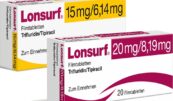Pembrolizumab is approved by FDA for adjuvant treatment of melanoma
On February 15, 2019, pembrolizumab (KEYTRUDA, Merck) was approved by the Food and Drug Administration for the adjuvant treatment of patients with melanoma with the involvement of lymph node(s) after full resection.
The approval was based on EORTC1325/KEYNOTE-054 (NCT02362594), a randomized, double-blind, placebo-controlled trial of 1019 completely resected, stage IIIA (>1 mm metastasis of the lymph node), IIIB or IIIC melanoma patients (AJCC 7th ed). Mucosal or ocular melanoma patients were not eligible. Patients were randomly assigned to receive pembrolizumab 200 mg every 3 weeks (1:1) or placebo for up to 1 year before recurrence of the disease or unacceptable toxicity. The registration required full resection of melanoma with negative margins, dissection of the lymph node and if indicated, completion of radiotherapy within 13 weeks prior to commencement of care.
As tested by researchers according to RECIST version 1.1, the primary efficacy outcome indicator was recurrence-free survival (RFS). RFS was described as the time between the randomization date and the first recurrence (local, regional, or distant metastasis) or any cause of death that occurred first. Fewer recurrences/deaths occurred in patients receiving pembrolizumab, 26 percent (n=135), compared to 43 percent (n=216) on the placebo arm (hazard ratio 0.57; 95 percent CI: 0.46, 0.70; p<0.001). Regardless of tumor PD-L1 expression, the RFS value of pembrolizumab relative to placebo was observed. In the placebo arm, the median RFS was 20.4 months and was not attained for those receiving pembrolizumab.
Seventy-six percent of patients received 6 months or longer of pembrolizumab. Pembrolizumab was discontinued in 14 percent of patients because of adverse reactions. The most common adverse reactions (reported in at least 10% of pembrolizumab-treated patients) were diarrhea, pruritus, nausea, arthralgia, hypothyroidism, cough, rash, asthenia, influenza-like illness, weight loss, and hyperthyroidism.
For melanoma, the recommended dose and schedule for pembrolizumab is 200 mg given as an IV infusion over 30 minutes every three weeks until the disease returns or the side effects become too much to handle, for a maximum of one year.
View full prescribing information for KEYTRUDA.
FDA granted this application standard review and orphan designation.
- Comments Closed
- December 15th, 2020




KEYTRUDA, Merck, NCT02362594, Pembrolizumab, RECIST, USFDA
CancerFax is the most trusted online platform dedicated to connecting individuals facing advanced-stage cancer with groundbreaking cell therapies.
Send your medical reports and get a free analysis.
🌟 Join us in the fight against cancer! 🌟
Привет,
CancerFax — это самая надежная онлайн-платформа, призванная предоставить людям, столкнувшимся с раком на поздних стадиях, доступ к революционным клеточным методам лечения.
Отправьте свои медицинские заключения и получите бесплатный анализ.
🌟 Присоединяйтесь к нам в борьбе с раком! 🌟